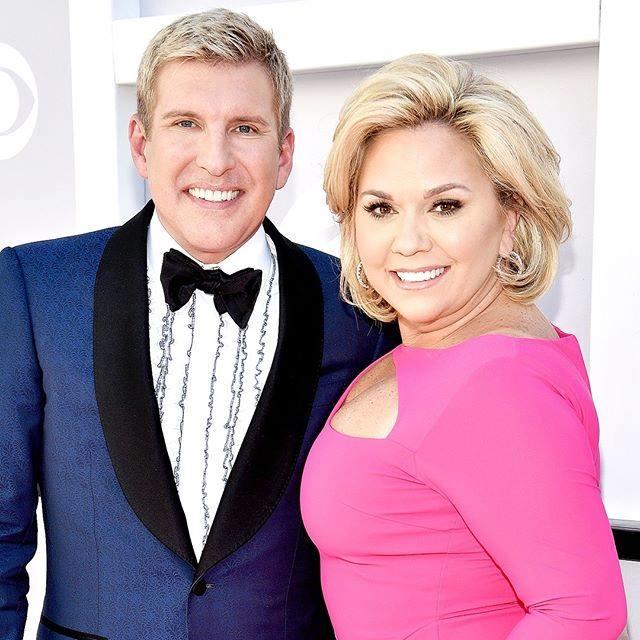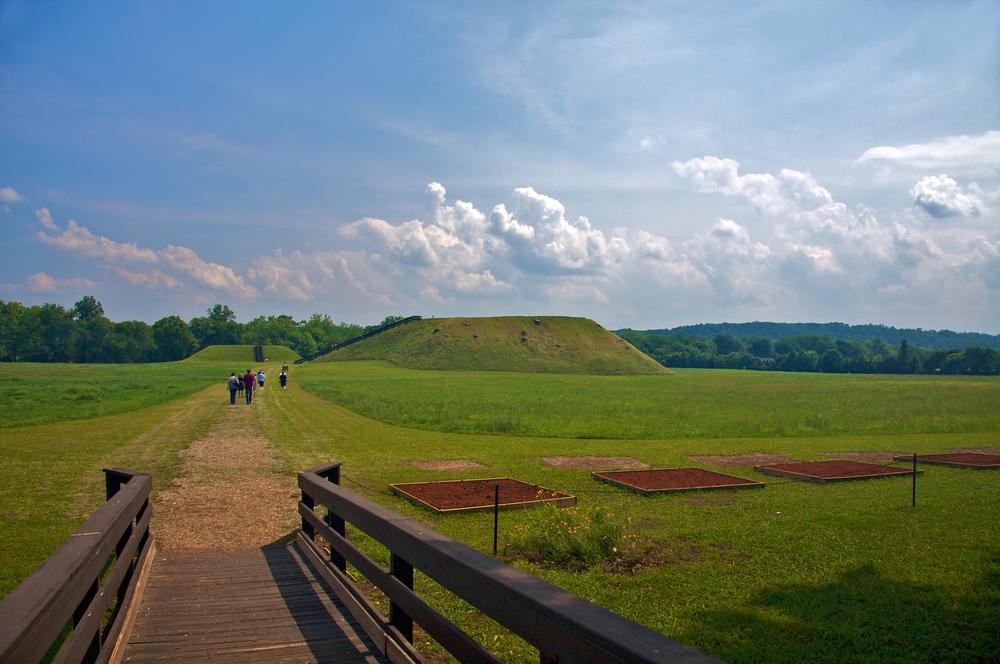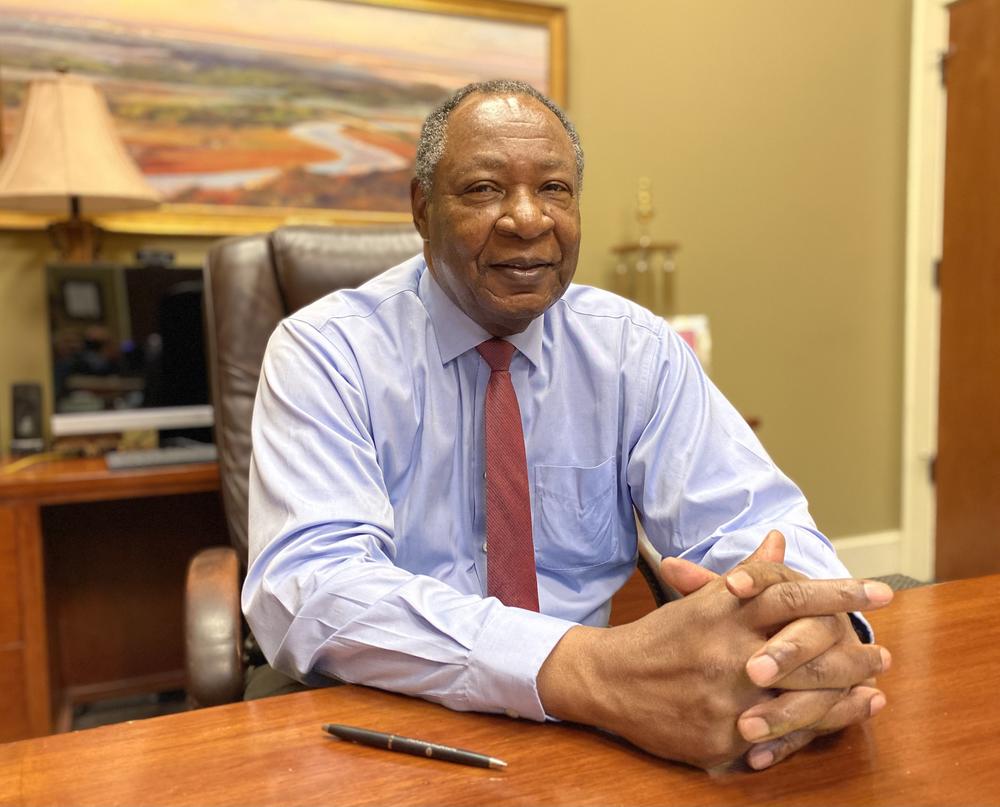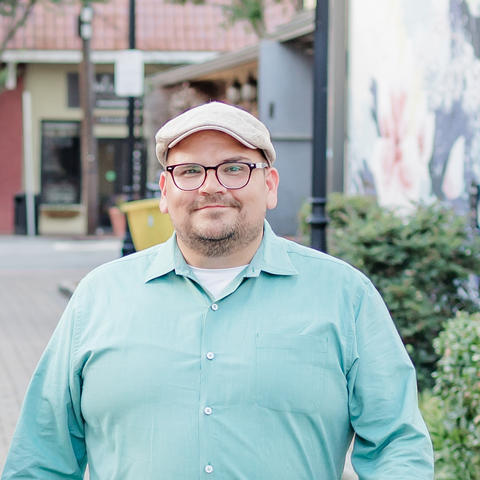
Section Branding
Header Content
Georgia Today: Georgia on IRS top 10 list, more high-speed internet in GA, gun safety in Atlanta
Primary Content
On the Thursday Jan. 5 edition of Georgia Today: Georgia is on an IRS top 10 list, more high-speed internet is coming, and Atlanta has new ideas for gun safety.

Peter Biello: Welcome to the new Georgia Today podcast from GPB News. Today is Thursday, Jan. 5. I'm Peter Biello. On today's episode: Georgia makes an appearance on the top 10 list of high-profile IRS cases in 2022; federal pandemic funds may help increase high-speed Internet access across the state; and the Atlanta City Council wants to increase gun safety and reduce the number of gun deaths. These stories and more are coming up on this edition of Georgia Today.

Story 1
Peter Biello: The criminal investigative arm of the IRS has listed a Georgia case among its top ten high profile cases for 2022. You may recall television personalities Julie and Todd Chrisley, stars of the series Chrisley Knows Best, which chronicled their lavish lifestyle in the suburbs north of Atlanta. Prosecutors said that lifestyle was based on lies. They were convicted in June of tax evasion and conspiracy to defraud the IRS and later sentenced to a combined 19 years in prison.
Story 2
Peter Biello: The Atlanta City Council passed a resolution this week aimed at increasing gun safety and reducing the number of injuries and deaths from guns. GPB's Amanda Andrews has more.
Amanda Andrews: The council will work with the Mayor's Office of Violence Reduction and Atlanta Police Department to provide free lock boxes for residents to store firearms. It's part of an effort to prevent accidental shootings and thefts of unsecured weapons. District 12 Rep. Antonio Lewis says providing lock boxes will also deter other crimes.
Antonio Lewis: No matter what you got in your car, they only want one thing. In my district, we had an old folks' home in which 26 cars were broken into. Nothing was taken because they were looking for guns.
Amanda Andrews: According to recent data from the FBI, the No. 1 source of illegal guns are those stolen from cars. The Atlanta Police Department reported over 1,000 weapons were taken from vehicles last year. For GPB News, I'm Amanda Andrews.
Story 3
Peter Biello: Gov. Brian Kemp announced yesterday a round of grants totaling $235 million in federal pandemic relief funds for broadband projects in 28 Georgia counties. Combined with local investment, nearly $455 million will go toward more than 76,000 locations across the state. Many of those communities are rural places, most in need of high-speed Internet access. For more on this story, go to GPB.org.

Story 4
Peter Biello: Hundreds of people disinterred by archeologists at the historic Etowah Mounds in Northwest Georgia will be returned to their descendants with the cooperation of the Georgia Department of Natural Resources. GPB's Grant Blankenship reports.
Grant Blankenship: Etowah is one of the most well-known of the Mound cities in the Southeast, which thrived in the centuries leading up to European contact. Since the 1960s, displays of what was taken from the funeral mound have been the real draw to the state-run museum at the site that included art and, at one time, human remains. Now, under the federal Native American Graves and Repatriation Act, the Georgia DNR will return their collection to the Muskogee Nation, the descendants of the people of Etowah. RaeLynn Butler leads historic and cultural preservation for the Muskogee Nation. She says the ultimate aim of letting the dead rest will likely take years.
RaeLynn Butler: You know, over 400 ancestors' human remains. And we have this many funerary objects, you know, over 100,000. And so it's going to take time for somebody who has experience identifying human remains and working with artifacts to go through these collections and to reunite the — the people with their belongings.
Grant Blankenship: That's because, today, those people and their belongings are spread between different museum collections across the country. Butler says the new Etowah Museum will be built around the long-missing tribal perspective and site interpretation by Muskogee educators. For GPB News, I'm Grant Blankenship in Macon.
Story 5
Peter Biello: One of Georgia's newest members of Congress is looking forward to advocating for policy changes on health care and America's supply chain. Republican Mike Collins has billed himself as a Trump supporter and conservative outsider. He'll represent Georgia's 10th Congressional District. Collins runs a trucking company.
Mike Collins: You see trucks on the road. You see our industry, but you don't know anything about it. And to be able to bring that insider knowledge into this, to — to Congress just in that industry alone will be a big help.
Peter Biello: Collins will officially be sworn in after the House elects a speaker.

Story 6
Peter Biello: When 24-year-old Bob James became president of Savannah's Carver State Bank in 1971, he was one of the youngest bank presidents in the country. Now, after more than 50 years in that role, he says he's ready to hand over the bank's day-to-day operations to his son, Robert James II. Carver State Bank is one of fewer than 20 Black-owned banks in the U.S. and the oldest commercial bank still headquartered in Georgia's oldest city. Bob James is with us now. And congratulations on 50 years with with Carver State Bank. Why have you decided to scale back your role in the company now?
Bob James: Well, I was named president when I was 24, and then I had a birthday in November, and I took over on December the 1st of 1971. So I was actually 25 years old when I actually started working as president. But it's been an interesting journey. I have managed to keep Carver safe. My son has become extremely involved in the bank. He's an attorney. So he's migrating into the bank. And so we have executive leadership. And he was a part of our succession plan for many years. So he's taking a more prominent role. So my role has definitely changed.
Peter Biello: But you'll stay involved, it seems. What's been the most rewarding aspect of running this bank for you over the past 50 years?
Bob James: Well, you know, we've had — we have a unique mission. When other financial institutions were making decisions to to scale back their services to inner-city neighborhoods and low-income people, we did exactly the opposite. We figured out how to aggressively provide valuable valued services in — in low- to moderate-income neighborhoods. And we've we've served low-income African American populations. And so I take great pride in the fact that we have been effective in that service. We have stayed true to our mission and we have been successful.
Peter Biello: What role do Black-owned banks in particular play in the communities that they serve?
Bob James: Well, interestingly enough, most of the mainstream financial institutions have over the years abandoned low-income people. They have found that that it's far more profitable to — to serve middle to upper income individuals and mid-sized to large businesses. And so what has happened is that you have an absence of retail banking operations and in these neighborhoods. During the the last recession, most of the rural banks failed — small banks in rural communities. So you had counties in the state of Georgia with no real retail banking operation. So that means that a farmer or a small business person in a rural area in the state of Georgia did not have a local bank that they could go to. And then then after they, the local bank, sold out or merged, or failed, the larger institutions that bought those institutions did not put individuals in charge who could make decisions. So people who normally had good banking relationships with the banker, who could actually approve credits and and approve their business transactions, there was no such person in that community any longer. So — so our banks, the African American banks have stayed true. We have stayed in our communities. That's been the difference that we have made.
Peter Biello: You've had offers to sell your state charter over the years, but you've turned them down. Why have you turned them down?
Bob James: Well, we turned them down because most of the people who wanted to purchase said they wanted the charter, but they didn't want the mission of this institution. Their interest was in enhancing shareholder value. So they would they would not have wanted to serve the market that we serve.
Peter Biello: To some extent, Is that why you stayed on the job for 50 years? I mean, there aren't many people who stay in any job for 50 years. Were you intent on keeping the mission alive?
Bob James: Well, yes. That mission has been my driving force since I got into — into banking. So — so, yes, this is that mission has kept me in this job.
Peter Biello: Well, Bob James, we wish you the very best in this next phase of your life. Thank you so much for speaking with me.
Bob James: Well, it's fantastic. Enjoyed talking to you.
Peter Biello: And that is it for today's edition of Georgia Today. We want to hear from you. Let us know what you think of this podcast. Tell us what you want to hear that you haven't heard yet. Send us an email. The address is GeorgiaToday@GPB.org. And for more news from GPB, go to GPB.org/Newsletters and sign up for the Georgia Today newsletter.
I'm Peter Biello. Thank you so much for listening. We'll see you tomorrow.


